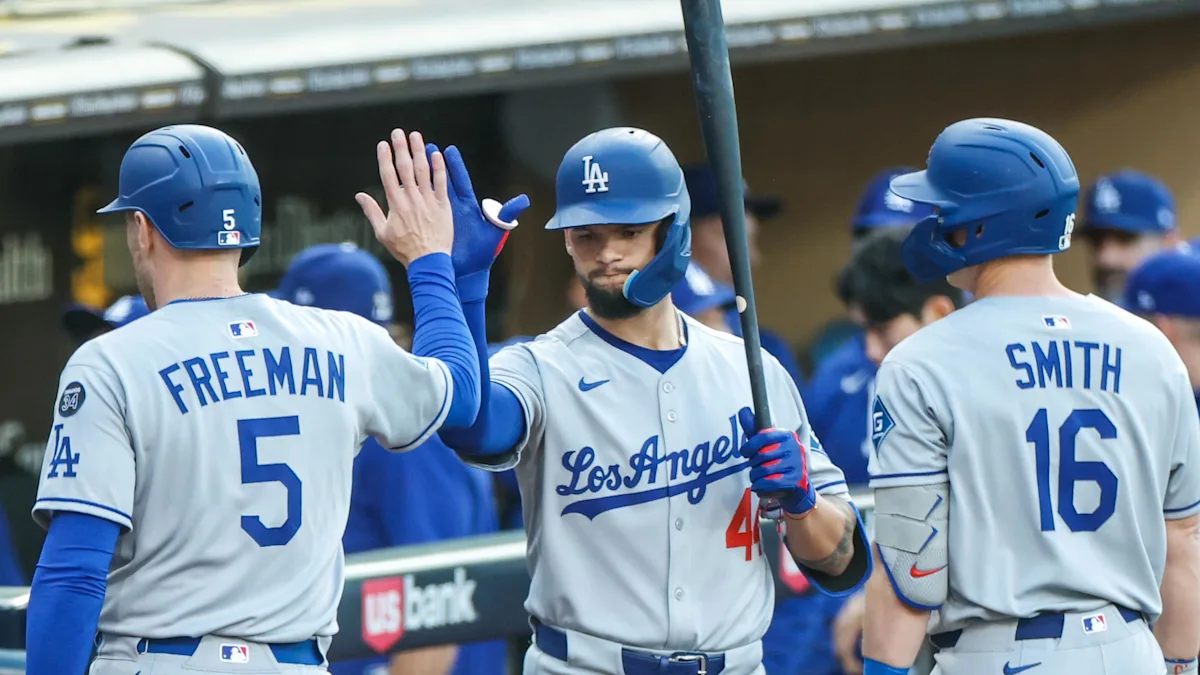How a Trump-Era Executive Order Reshaped the Path of the Dodgers’ Breakout Outfielder’s Career
The trajectory of a professional athlete’s career is often shaped by talent, opportunity, and perseverance. But sometimes, external forces—such as government policies—play an unexpected role in altering their path. For one of the Los Angeles Dodgers’ most promising breakout outfielders, a 2017 executive order signed by then-President Donald Trump had far-reaching consequences, influencing not just his journey to the majors but also the broader landscape of international player recruitment in Major League Baseball (MLB).
In September 2017, President Trump signed an executive order ending the Deferred Action for Childhood Arrivals (DACA) program, an Obama-era policy that protected undocumented immigrants brought to the U.S. as children from deportation. While the order primarily targeted immigration policy, its ripple effects extended into sports, particularly for athletes whose legal status in the U.S. was tied to DACA.
Among those affected was a young, talented baseball player—now a key outfielder for the Dodgers—who had been living in the U.S. under DACA protections. His family had emigrated from Latin America when he was a child, and though he had spent nearly his entire life in the U.S., his undocumented status made his future uncertain. The revocation of DACA threw his career into jeopardy, as the threat of deportation or restricted travel loomed over his ability to play professionally.
For MLB teams, scouting and signing international talent—particularly from countries like the Dominican Republic, Venezuela, and Cuba—is a cornerstone of roster construction. Many players enter the U.S. on visas tied to their professional contracts, but those who grow up stateside without documentation face unique hurdles. The Dodgers’ outfielder was one such case: a standout high school player with MLB potential but no clear path to the draft due to his immigration status.
Before DACA’s rescission, he had been able to work, obtain a driver’s license, and—critically—travel domestically for games and showcases. The executive order put all of that at risk. Without DACA, he could no longer renew his work permit, leaving him ineligible for certain amateur leagues and jeopardizing his visibility to scouts. Some MLB teams, wary of the legal complexities, hesitated to invest in players whose futures were clouded by immigration uncertainty.
The Dodgers, known for their robust international scouting department, took a calculated risk. Recognizing his talent, they worked closely with immigration attorneys to secure a temporary visa solution, allowing him to participate in their farm system. This required navigating a labyrinth of legal challenges, including proving that his skills were “extraordinary” enough to qualify for an O-1 visa (reserved for individuals with “extraordinary ability or achievement”).
The team’s investment paid off. After years in the minors, the outfielder debuted in the majors, quickly establishing himself as a dynamic player with a rare combination of speed, power, and defensive prowess. His success story is a testament to both his resilience and the Dodgers’ willingness to advocate for players facing systemic barriers.
The fallout from Trump’s executive order forced MLB to confront its reliance on international talent amid shifting immigration policies. While the league has long benefited from players from Latin America, the political climate under Trump—including stricter visa regulations and heightened deportation threats—created new obstacles for undocumented athletes raised in the U.S.
In response, some teams expanded their legal resources to help players navigate immigration hurdles. Others pushed for reforms, including clearer pathways for undocumented athletes to enter the draft. The Dodgers’ outfielder became an inadvertent symbol of this struggle, illustrating how policy decisions off the field can alter careers on it.
Today, the outfielder is a key contributor to the Dodgers’ lineup, a fan favorite, and a reminder of how sports and politics often intersect. His journey underscores the precarious position of immigrant athletes in America—where talent alone isn’t always enough to overcome bureaucratic barriers.
While DACA remains in legal limbo, his success offers hope to other young players in similar situations. It also serves as a call to action for MLB to formalize policies that protect and nurture talent, regardless of immigration status.
The Trump-era executive order that threatened to derail the Dodgers’ outfielder’s career ultimately became a defining challenge that shaped his path to the majors. His story is one of triumph over adversity, but it also highlights the often-overlooked ways in which political decisions impact the world of sports. As debates over immigration reform continue, his career stands as a powerful example of what’s at stake—not just for athletes, but for the future of America’s pastime.



